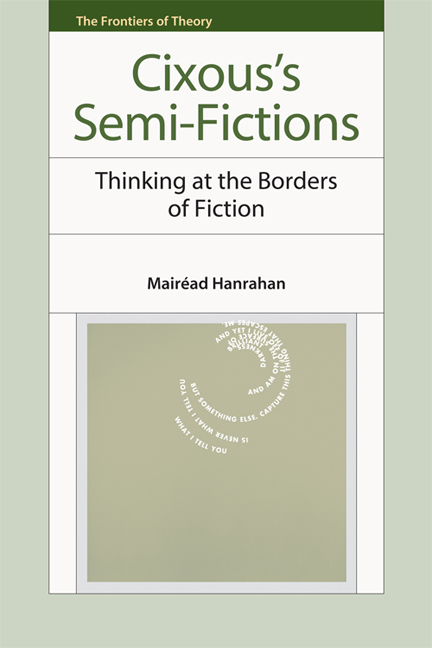Book contents
2 - Fictional Analysis: Dedans
Published online by Cambridge University Press: 05 August 2016
Summary
‘What is the interest of psychoanalysis for the non-analyst?’, Cixous asks in her contribution to a recent volume arising from a conference discussing the place of psychoanalysis in her work and that of Jacques Derrida. She presents herself explicitly as a non-analyst: ‘I imagine – but maybe I am mistaken – that none of us here is an analyst’. This non-analyst, who is also on record as a non-analysand, nonetheless opens her piece with the assumption that she and her audience ‘are all, all of us, fellow para-practitioners’, and later asserts: ‘I'm telling you about lay-analysis, which we – all of us – somehow practise. We are all lay-analysts, beginning with the first analyst who was a lay-analyst, since Freud was an analyst before analysis, the pre-analysed, pre-analytical analyst.’ She thus in effect situates herself at the borders of psychoanalysis: both outside and inside it.
Cixous's (atypical) totalisations in this quotation (‘none of us’, ‘all of us’) are of especial interest. It is no surprise that she should situate her own work at this border, notwithstanding the fact that she personally has no clinical experience of psychoanalysis (as was also the case with Derrida). Although her first response to Freud's text was negative, her discovery of The Interpretation of Dreams a few years later launched a dialogue with psychoanalysis which has lasted throughout her writing career. A whole series of texts engage explicitly and extensively with its precepts and principles, often deploying insights gleaned from psychoanalysis to critique its own blind spots. Others leave little doubt as to the admiration Cixous felt for Freud's intellectual adventurousness and candour; as she herself reminds us, he is often a character in her texts, ‘usually as an uncle. He is a nuncle.’ This sense of a familial relationship is motivated by their shared Jewish identity; Cixous specifies that the formative ‘primal scene’ that she, Freud and Derrida had in common had less to do with the origins of sexuality than with Judeity. But Freud figures for Cixous above all as the thinker of the unconscious. Shakespeare was her ‘first Freud’ in that his work supremely explores the passions that drive the human animal. In retrospect, it can be seen already to express Freud's major intuitions.
- Type
- Chapter
- Information
- Cixous's Semi-FictionsThinking at the Borders of Fiction, pp. 19 - 55Publisher: Edinburgh University PressPrint publication year: 2014



